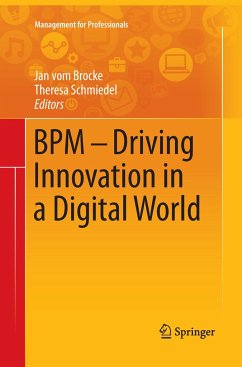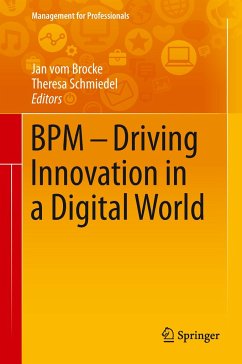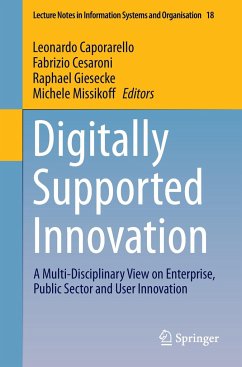
Managing Open Innovation Technologies
Versandkostenfrei!
Versandfertig in 6-10 Tagen
76,99 €
inkl. MwSt.

PAYBACK Punkte
38 °P sammeln!
Open innovation increases the profit of companies and organizations via the input and the adoption of new ideas that are transformed into new processes, products, and services. Yet, how do we ensure that adopters of such innovations focus on relevant problems and use appropriate methods? How should we manage open innovation technologies? How can we exploit distributed knowledge and inventions? And how can we promote them successfully on the market?With valuable lessons to be learned from academic research and industrial experiences of e.g. Intel, Nokia, Philips Healthcare, small municipalities...
Open innovation increases the profit of companies and organizations via the input and the adoption of new ideas that are transformed into new processes, products, and services. Yet, how do we ensure that adopters of such innovations focus on relevant problems and use appropriate methods? How should we manage open innovation technologies? How can we exploit distributed knowledge and inventions? And how can we promote them successfully on the market?
With valuable lessons to be learned from academic research and industrial experiences of e.g. Intel, Nokia, Philips Healthcare, small municipalities, e-learning platforms and user communities, this book focuses on some of the key dimensions of open innovation and open innovation technologies. It is divided into three themes: theme 1 deals with open innovation as it is in use today, including theoretical underpinnings and lessons from related research fields. Theme 2 analyzes the use of open innovation in organizations today in order to extract best practices. Theme 3 presents forward-looking theoretical research as well as practical future uses of open innovation. Each chapter addresses the particular topics by presenting experiences and results gained in real life projects and/or by empirical research, and clearly states its purpose and how readers are supposed to benefit from it.
Overall, the objectives of this book are to advance and disseminate research on systematic open innovation, and to make its results available to practitioners. Thus, the intended target audience includes the international academic community, industrial enterprises, and public authorities.
With valuable lessons to be learned from academic research and industrial experiences of e.g. Intel, Nokia, Philips Healthcare, small municipalities, e-learning platforms and user communities, this book focuses on some of the key dimensions of open innovation and open innovation technologies. It is divided into three themes: theme 1 deals with open innovation as it is in use today, including theoretical underpinnings and lessons from related research fields. Theme 2 analyzes the use of open innovation in organizations today in order to extract best practices. Theme 3 presents forward-looking theoretical research as well as practical future uses of open innovation. Each chapter addresses the particular topics by presenting experiences and results gained in real life projects and/or by empirical research, and clearly states its purpose and how readers are supposed to benefit from it.
Overall, the objectives of this book are to advance and disseminate research on systematic open innovation, and to make its results available to practitioners. Thus, the intended target audience includes the international academic community, industrial enterprises, and public authorities.












